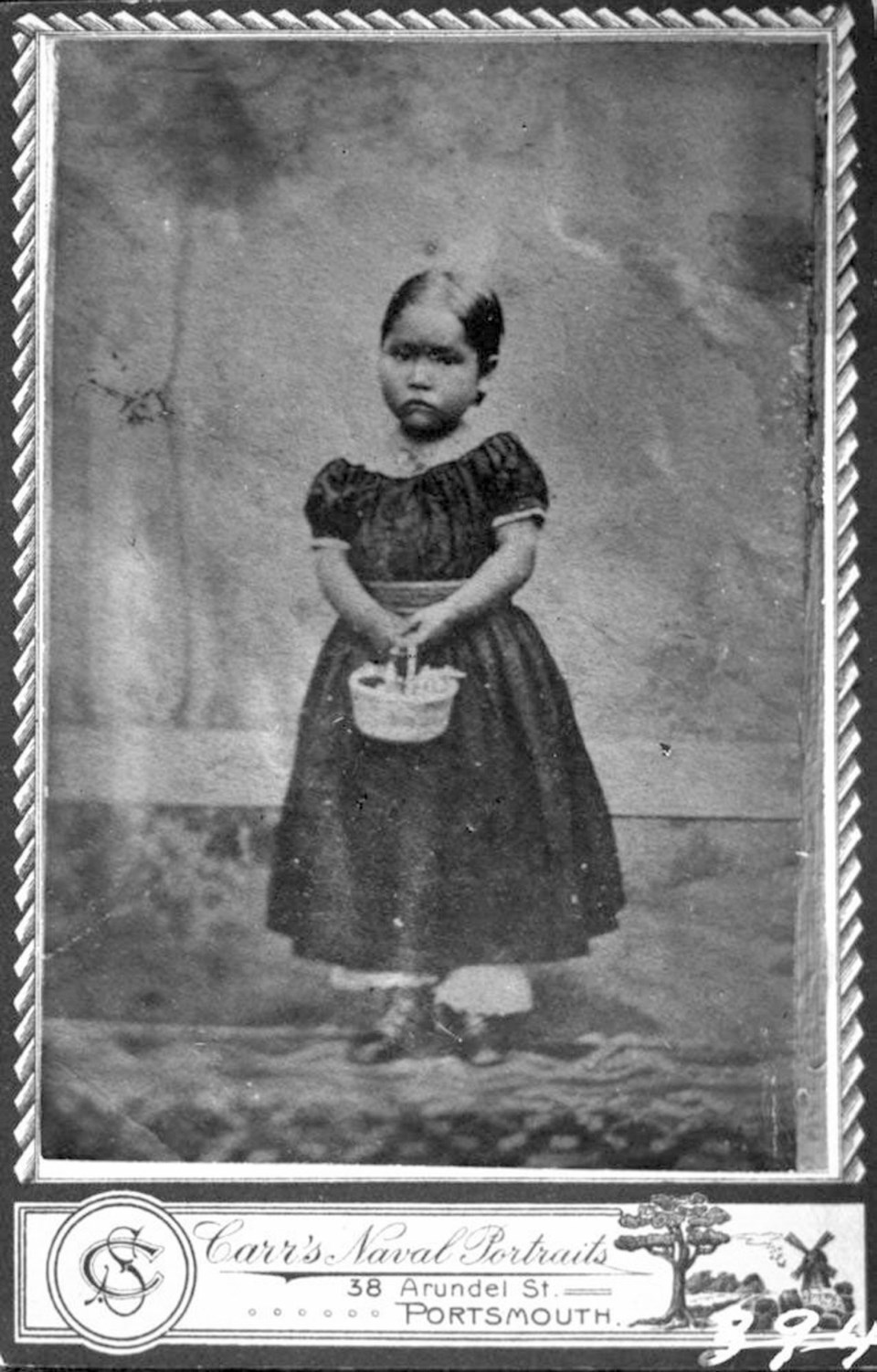The story of a little Indigenous girl ripped from her family in 1864 has connected two communities still reeling from the colonial legacy of the British Empire.
The story of how the Ahousaht First Nation came to receive $100,000 from a Sikh humanitarian agency starts with a toddler who would come to be known as Maggie Sutlej.
British sailors pulled the toddler’s body from underneath her dead mother. The woman was one of 15 Ahousaht people killed after their villages were fired upon by two Royal Navy ships in August 1864, according to the book Tofino and Clayoquot Sound: A History.
The gun ships, HMS Sutlej and HMS Devastation, were sent from Esquimalt to Clayoquot Sound to retaliate against the killing of Capt. James Stevenson and his two-man crew after they docked their trading vessel, Kingfisher, on Flores Island. The Daily Colonist reported that the traders were killed by Ahousaht Chief Cap-chah and 12 of his men.
The toddler was carried aboard HMS Sutlej and “adopted” by the wife of Rear Admiral Joseph Denman, HMS Sutlej’s commander.
The girl was renamed Margrette Sutlej Davis, after the admiral’s wife, the ship and a crew member named Cpl. Davis, according to the Royal British Columbia Museum.
A black and white photo from the museum’s archives shows a cherub-faced toddler wearing a petticoat and clutching a basket of flowers. Her downcast eyes and crescent-shaped mouth portray a child forlorn.
The child, called Maggie for short, died two years later, while the ship was off the coast of Chile. She was buried at sea.
The connection to the Sikh humanitarian agency, Khalsa Aid, started with a Victoria man named Jatinder Singh. The director of the agency’s Canadian branch began researching HMS Sutlej after he heard Victoria Coun. Ben Isitt refer to Sutlej Street as one that might be painful to Indigenous communities.
For the Sikh community, the Sutlej River in Punjab is sacred. It cradles the ashes of three gurus and its banks are dotted with Sikh temples.
HMS Sutlej was named to commemorate the British East India Company’s victory in the Battle of the Sutlej against the Sikh Empire. This resulted in Punjab becoming a colony of the British Empire.
When Singh learned of the abduction of Maggie Sutlej, he felt compelled to connect with the Ahousaht people.
“I felt like I wanted to reach out to them and say: ‘The name Sutlej has a negative connotation, but let’s try and turn it into something positive and raise awareness of Maggie Sutlej,’ ” Singh said.
At a gala in Parksville today, Khalsa Aid Canada will give the Ahousaht First Nation $100,000 to support the nation’s youth programs and search-and-rescue operations over the next five years. The initiative will be called the Maggie Sutlej Ahousaht Project.
Ahousaht Chief Greg Louie said he’s overwhelmed by the powerful gesture of reconciliation.
The story of the little girl stolen from her community is still a central part of Ahousaht’s oral history, Louie said.
Louie, who was ripped from his own family when he was taken to the Christie Indian Residential School in Tofino, said little Maggie’s fate “is another story of a child being taken away [from their community].”
Louie said the federal government speaks a lot about reconciliation but sometimes fails to act on its promises.
“But here’s a non-political agency that says ‘we’re willing to reconcile with you.’ We’re willing to stand beside each other,” Louie said.
“My hope is that the Ahousaht community, they realize there are other people out there who care about what happened to them,” Singh said.
“Even if it’s a community whose roots are thousands of miles away on another continent, the Sutlej name links us together.”



